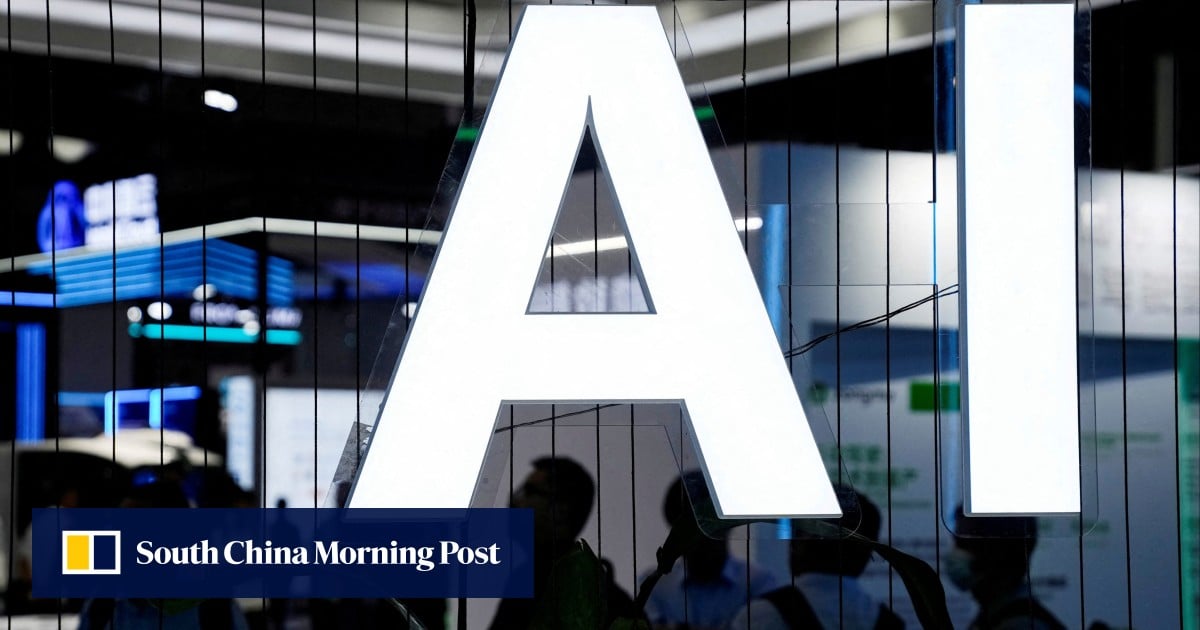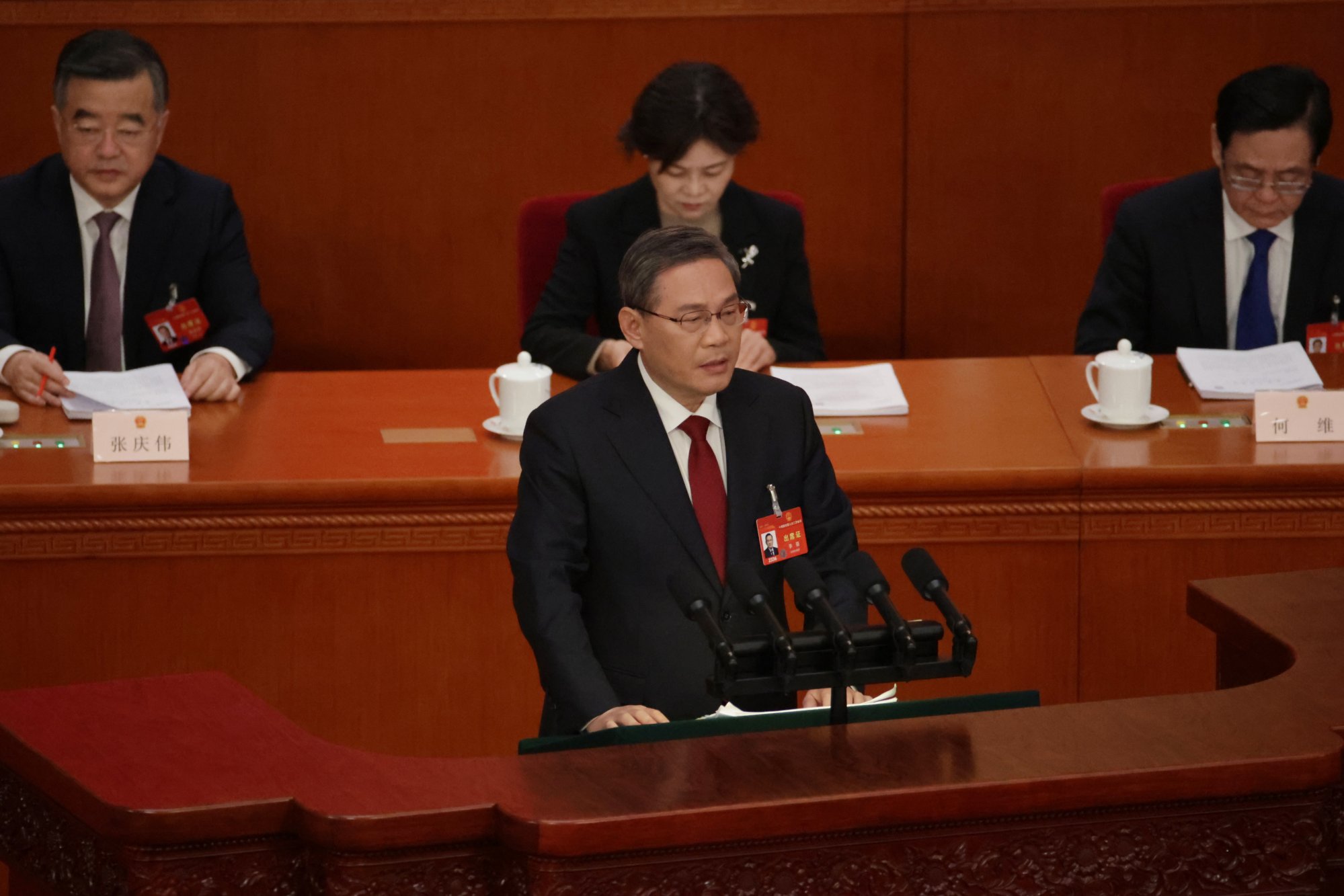
11 Mar ‘Two sessions’ 2024: China’s lawmakers call for more AI development to catch up with US, while keeping it under regulatory control
“We must establish a unified market for computing power services and the effective use of resources across the country,” Yu, a CPPCC member, said.
Xi Jinping’s hi-tech push steals the spotlight at China’s ‘two sessions’
Xi Jinping’s hi-tech push steals the spotlight at China’s ‘two sessions’
His appeal resonated with other delegates, including telecoms equipment maker ZTE’s senior vice-president Miao Wei and Ma Kui, general manager at China Mobile’s Sichuan branch, who both called for increased investment in and more coordinated development of computing infrastructure. Miao and Ma are NPC delegates.
“Computing power … has become the focus of international competition,” said Ma, who also highlighted the imbalance of the Chinese AI industry, with research teams located mostly in first -tier cities such as Beijing and Shanghai but computing resources clustered in other smaller cities.
The calls for a state-orchestrated computing infrastructure come after five Chinese government bodies, including MIIT and the National Development and Reform Commission, the country’s top economic planner, issued a policy titled “East-West Compute Transfer” to coordinate computing resources between China’s eastern and coastal provinces and its western inland regions.
But Zhang Yunquan, a CPPCC member and a research fellow from the Chinese Academy of Sciences, said the project would not help efforts to train large language (LLM) models for AI, as it mainly serves traditional data centre and cloud computing demands.
Instead, Zhang proposed state-led efforts to coordinate academic and industrial resources to build up a “sovereign LLM”.
Cao Peng, chair of the technology committee at Chinese e-commerce giant JD.com and head of its cloud unit, called for the development of home-made AI chips to circumvent Washington’s export controls.
‘Two sessions’ 2024: China’s construction of particle collider may start in 2027
‘Two sessions’ 2024: China’s construction of particle collider may start in 2027
Liu Qingfeng, chairman at iFlyTek, a Chinese AI specialist known for its voice recognition capability, called for a national-level approach to “systematically and rapidly propel our country’s artificial general intelligence growth”.
“We need to acknowledge the gap … and consolidate resources from the state level to accelerate the catch-up [with US AI firms],” according to Liu.
Zeng Yi, a CPPCC member and head of China Electronics Corporation, warned that China was lagging in generative AI when it came to talent and basic scientific research. “We are all very anxious” about being left behind, Zeng said.
Premier Li Qiang introduced an AI+ initiative to integrate the power of AI across traditional sectors to drive economic growth, and to push for technology upgrades. Meanwhile, China’s lawmakers and political advisers voiced concern about potential disruptions from AI, and called for effective regulation.

Lou Xiangping, head of China Mobile’s branch in the central Henan province, proposed an accountability system to hold service providers – such as operators of local ChatGPT-like services – responsible for possible mishaps.
China has already implemented a registration system that requires local LLMs to apply for approval before providing public services. More than 40, or around one-fifth of the country’s total number of LLMs, have been given the green light for public release.
Zhang Yi, a CPPCC member and senior partner at law firm King & Wood Mallesons, tabled his proposal about improving AI regulation but also cautioned that too many laws might hinder the development of the local industry.
In explaining his proposal to local media, Zhang said China needs to balance regulation and development through an approach that clearly defines what is illegal, while also allowing companies to innovate and explore new areas.
“As global AI competition intensifies …[we] need to be wary of how overbearing legal intervention could inhibit the healthy and orderly development of AI,” he said.
